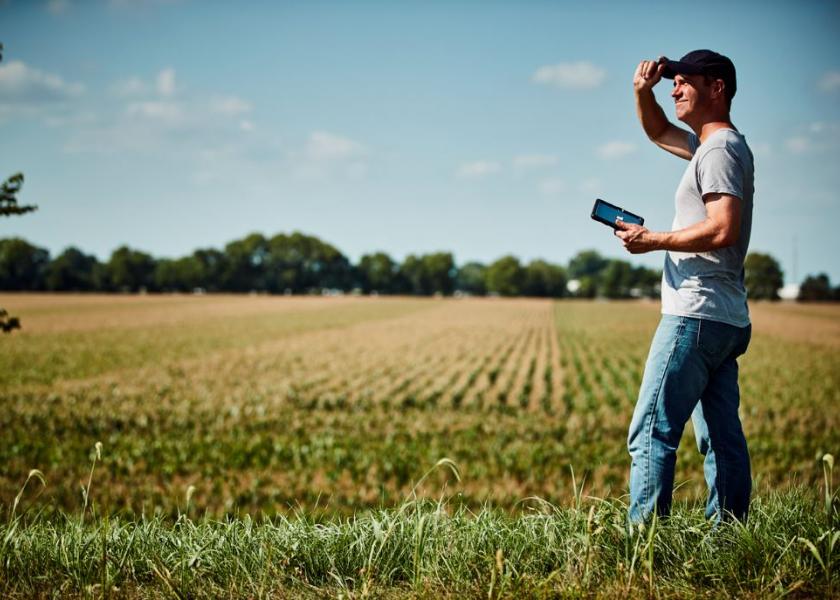Soil Health a Priority in Latest USDA Climate Funding

USDA Secretary Tom Vilsack on Monday announced $325 million of funding for second round of climate-smart ag pilot projects.
The funding includes 71 smaller projects seeking $250,000 to nearly $5 million under the second round of the department’s Partnerships for Climate-Smart Commodities (PCSC) effort. Vilsack says the latest round is focused on projects targeting underserved producers and partnerships with minority-serving academic institutions.
"Small and underserved producers are facing the impacts of climate change head on, with limited resources, and have the most to gain from leveraging the growing market demand for agricultural goods produced in a sustainable, climate-smart way," Vilsack said in the press release. "Our goal is to expand markets for climate-smart commodities and ensure that small and underserved producers reap the benefits of these market opportunities."
The second round follows an initial round of $2.8 billion in funding across 70 larger projects — seeking $5 million to $100 million — that USDA rolled out in September. Total funding awarded under both rounds stands at $3.1 billion, up from an initial $1 billion USDA originally set aside for the effort.
Examples of the newly funded programs include:
- Biochar for Climate-Smart Farms in Missouri - $4,935,000 to Missouri Organic Association to provide direct on-farm assistance and support to convert on-farm ag-waste into biochar, a soil amendment, for Missouri farms and measure and market the resulting climate-smart commodities.
- Precision Ag Tech to Expand the Participation of Small Grazing Dairy Farms - $4,770,000 to Dairy Grazing Apprenticeship Inc. to make direct payments and provide technical assistance to small-scale dairy farmers to implement climate-smart grazing management.
- Beef Cattle Management in Utah’s Semi-arid Rangelands - $4,999,000 to Utah ranchers running small scale operations would receive financial and technical assistance to participate in an innovative grazing pilot project to produce climate-smart beef and establish viable and accessible cattle marketplaces.
Fund Funnel
Funding is being drawn from the Commodity Credit Corporation (CCC), a development that has caught Republican lawmakers’ attention.
CCC requires funds be used “for the expansion of markets in US commodities and the promotion of U.S. exports,” and the department has said PCSC is consistent with the requirement as the pilots seek to promote the development and marketing of climate-smart commodities that can fetch a premium in the marketplace.
Pushback from Congress
Some Republican lawmakers have questioned how the move might impact CCC’s other obligations like making farm bill program payments to farmers, along with their concerns about a lack of oversight over the spending.
Incoming House Ag Chair Glenn “GT” Thompson (R-Pa.) has signaled he will increase oversight related to the use of CCC funds for the PCSC program. However, ag interests have been generally supportive of the pilot program, and major farm and commodity groups are among the partners that have been awarded funding under both rounds of the effort.
A complete list of projects is available through the USDA.
More on USDA:
How USDA's $2.8 Billion Climate-Smart Investment Might Impact Your Operation
Farm Share of the U.S. Food Dollar Hit a Record Low; What Does this Mean for Producers?







